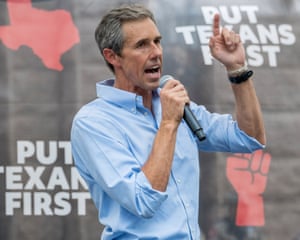
Vance says National Guard is 'busting their a--’ in Washington, floats mission extension
Entities mentioned:
- JD Vance: Righteousness, Duty, Professional pride
- Donald Trump: Power, Control, Security
- National Guard: Duty, Obligation, Security
- Metropolitan Police Department: Duty, Security, Professional pride
- Brian Schwalb: Justice, Indignation, Self-preservation
Article Assessment:
Credibility Score: 65/100
Bias Rating: 55/100 (Center)
Sentiment Score: 40/100
Authoritarianism Risk: 65/100 (Authoritarian Tendencies)
Bias Analysis:
The article presents both the administration's justification and local opposition, providing a somewhat balanced view. However, it gives more space to the administration's perspective and uses emotionally charged language when describing the situation at Union Station.
Key metric: Crime Rate
As a social scientist, I analyze that this article highlights a contentious federal intervention in local law enforcement in Washington, D.C. The deployment of National Guard troops and federalization of local police to address crime issues raises significant questions about the balance of power between federal and local authorities. The administration's actions, while framed as necessary for public safety, are being challenged legally as a potential overreach of federal power and a threat to local autonomy. This situation could have far-reaching implications for federal-local relations, public safety policies, and the interpretation of emergency powers. The extension of the mission beyond the initial 30-day period could further escalate tensions and potentially set new precedents for federal intervention in local affairs.

Trump is promising a US manufacturing renaissance. Many experts are dubious
Entities mentioned:
- Donald Trump: Ambition, Power, Legacy
- US Manufacturing Industry: Competitive spirit, Professional pride, Security
- Economic Experts: Skepticism, Professional pride, Duty
Article Assessment:
Credibility Score: 70/100
Bias Rating: 45/100 (Center)
Sentiment Score: 40/100
Authoritarianism Risk: 30/100 (Generally Democratic)
Bias Analysis:
The article presents a balanced view by including both Trump's promises and expert skepticism. It refrains from overtly partisan language, maintaining a centrist approach to the topic.
Key metric: US Manufacturing Employment
As a social scientist, I analyze that Trump's promise of a US manufacturing renaissance is likely to have significant implications for US manufacturing employment. However, the skepticism from experts suggests that achieving such a renaissance may be challenging. The article implies a disconnect between political rhetoric and economic realities, which could impact public expectations and policy directions. This could lead to potential shifts in resource allocation, trade policies, and workforce development strategies, all of which directly affect the manufacturing sector's employment levels.

Politics Weekly AmericaIs Trump abandoning his ‘America First’ policy for Ukraine? – podcast
Entities mentioned:
- Donald Trump: Power, Control, Influence
- Republican Party: Control, Power, Competitive spirit
- Democratic Party: Power, Justice, Influence
- Gavin Newsom: Ambition, Competitive spirit, Justice
- Immigration and Customs Enforcement (ICE): Control, Duty, Security
- Marriott: Self-preservation, Professional pride, Obligation
- Volodymyr Zelenskyy: Unity, Determination, Security
Article Assessment:
Credibility Score: 65/100
Bias Rating: 35/100 (Lean Left)
Sentiment Score: 30/100
Authoritarianism Risk: 55/100 (Mixed/Neutral)
Bias Analysis:
The article leans slightly left in its framing, giving more space to criticisms of Republican and Trump administration actions. While it includes diverse topics, the language used tends to cast conservative policies in a more negative light.
Key metric: Electoral Integrity and Voter Participation
As a social scientist, I analyze that this article highlights significant political tensions and policy shifts in the United States, particularly focusing on immigration, redistricting, and foreign policy. The content suggests a potential shift in Trump's 'America First' policy regarding Ukraine, indicating changing dynamics in international relations. Domestically, the article points to Republican efforts to influence electoral processes through redistricting and voting restrictions, which could significantly impact electoral integrity and voter participation. The mention of using hotels for immigrant detention and changes in immigration application reviews suggests a tightening of immigration policies. These developments, combined with the pushback from Democratic leaders and local officials, indicate a highly polarized political landscape that could affect citizen trust in democratic institutions and processes.

Peter Thiel Shows Trump How To Sort Spreadsheet Of Americans By Ethnicity
Entities mentioned:
- Peter Thiel: Power, Influence, Greed
- Donald Trump: Control, Power, Fear
- Palantir: Influence, Control, Greed
Article Assessment:
Credibility Score: 30/100
Bias Rating: 35/100 (Lean Left)
Sentiment Score: 25/100
Authoritarianism Risk: 75/100 (Authoritarian Tendencies)
Bias Analysis:
The article leans left, critiquing right-wing figures and policies. It uses satire to mock and criticize conservative approaches to immigration and surveillance, indicating a left-leaning bias in its portrayal of these issues.
Key metric: Civil Liberties and Privacy Protection
As a social scientist, I analyze that this satirical article highlights concerns about potential misuse of technology for surveillance and discrimination. It suggests a hypothetical scenario where powerful tech companies collaborate with government officials to categorize and potentially target citizens based on ethnicity. This raises significant ethical questions about data privacy, civil liberties, and the concentration of power in both tech and government spheres. The article's exaggerated portrayal serves to underscore anxieties about the erosion of democratic norms and the rise of authoritarian tendencies in governance and technology use.

Trump: ‘I’m Not In These Nonexistent Files Concocted To Destroy Me’
Entities mentioned:
- Donald Trump: Self-preservation, Indignation, Power
Article Assessment:
Credibility Score: 30/100
Bias Rating: 40/100 (Lean Left)
Sentiment Score: 50/100
Authoritarianism Risk: 35/100 (Generally Democratic)
Bias Analysis:
The content leans slightly left due to its implicit mockery of Trump's rhetoric. However, as a horoscope/satire piece, it's not intended to be a serious political statement.
Key metric: Public Trust in Government
As a social scientist, I analyze that this article is not a genuine news piece, but rather a satirical horoscope that references a statement attributed to Donald Trump. The content does not provide any substantive information or analysis related to actual events or policies. Instead, it uses humor to allude to Trump's tendency to deny allegations against him. This type of content, while entertaining, can contribute to the blurring of lines between fact and fiction in public discourse, potentially impacting public trust in government and media.

Air Force chief abruptly retires early in latest Pentagon shakeup
Entities mentioned:
- Gen. David Allvin: Professional pride, Duty, Self-preservation
- Pete Hegseth: Power, Control, Ambition
- Donald Trump: Power, Control, Influence
- Troy E. Meink: Loyalty, Duty, Professional pride
- US Air Force: Duty, Security, Professional pride
Article Assessment:
Credibility Score: 70/100
Bias Rating: 55/100 (Center)
Sentiment Score: 35/100
Authoritarianism Risk: 65/100 (Authoritarian Tendencies)
Bias Analysis:
The article presents facts from named sources and includes direct quotes, lending credibility. However, it relies on an unnamed source for key information about Hegseth's intentions, which introduces some bias. The tone is generally neutral, with balanced presentation of statements from different parties.
Key metric: Military Readiness and Stability
As a social scientist, I analyze that this article reveals a concerning pattern of instability and turnover in high-ranking military positions. The abrupt retirement of Gen. David Allvin, halfway through his expected term, coupled with the earlier dismissals of other senior military officials, suggests a significant disruption in military leadership continuity. This pattern may negatively impact long-term strategic planning, troop morale, and overall military readiness. The apparent involvement of civilian leadership in these changes raises questions about the balance of civil-military relations and the potential politicization of military appointments. This trend could lead to a loss of institutional knowledge and experience at the highest levels of military command, potentially compromising national security interests.

Democratic Texas lawmaker passes 24-hour mark on state House floor after refusing GOP demand for law enforcement escort
Entities mentioned:
- Nicole Collier: Righteousness, Determination, Duty
- Dustin Burrows: Control, Power, Duty
- Texas House Democrats: Resistance, Justice, Self-preservation
- Texas Republicans: Power, Control, Ambition
- Beto O'Rourke: Moral outrage, Unity, Recognition
- Greg Abbott: Power, Ambition, Loyalty
- Donald Trump: Influence, Power, Control
- Gavin Newsom: Competitive spirit, Power, Revenge
Article Assessment:
Credibility Score: 75/100
Bias Rating: 45/100 (Center)
Sentiment Score: 35/100
Authoritarianism Risk: 65/100 (Authoritarian Tendencies)
Bias Analysis:
The article presents perspectives from both Democrats and Republicans, quoting multiple sources. While it gives more space to Democratic viewpoints, it includes Republican statements and contextualizes the broader political landscape.
Key metric: Electoral Integrity
As a social scientist, I analyze that this article highlights a significant conflict over redistricting in Texas, which has broader implications for national electoral integrity. The standoff between Democrats and Republicans over proposed redistricting plans underscores the intensifying partisan struggle for control of the U.S. House of Representatives. Rep. Collier's protest against what she perceives as intimidation tactics reflects growing tensions around voting rights and fair representation. The involvement of law enforcement in monitoring legislators' movements raises concerns about the balance of power between branches of government. This situation exemplifies how gerrymandering and redistricting battles are becoming increasingly contentious, with potential long-term impacts on democratic processes and voter representation. The article also reveals how state-level actions can trigger nationwide responses, as seen in California's proposed countermeasures, indicating a broader, more complex challenge to maintaining electoral integrity across the United States.

Gavin Newsom is owning the MAGAs. How far can he take it?
Entities mentioned:
- Gavin Newsom: Ambition, Competitive spirit, Power
- Democratic Party: Unity, Self-preservation, Power
- Donald Trump: Power, Control, Influence
- Republican Party: Power, Control, Competitive spirit
Article Assessment:
Credibility Score: 70/100
Bias Rating: 40/100 (Lean Left)
Sentiment Score: 55/100
Authoritarianism Risk: 35/100 (Generally Democratic)
Bias Analysis:
The article leans slightly left, focusing more on Democratic perspectives and Newsom's potential. While it includes some criticism of Newsom, it generally frames his actions in a positive light compared to Republican strategies.
Key metric: Political Polarization Index
As a social scientist, I analyze that this article highlights the increasing political polarization in the United States, with Gavin Newsom emerging as a potential counterforce to MAGA rhetoric. The focus on redistricting battles and Newsom's confrontational approach towards Trump and Republicans suggests a deepening divide between the two major parties. This polarization could significantly impact voter engagement and governance effectiveness. Newsom's rising profile within the Democratic Party, despite mixed public opinion, indicates a shift towards more combative political strategies. This trend may further entrench partisan divisions and potentially alienate moderate voters, affecting the overall political landscape and policy-making processes.

DOJ prosecutor investigating New York Attorney General Letitia James seen posing for photos outside of her home
Entities mentioned:
- Ed Martin: Loyalty, Power, Revenge
- Letitia James: Justice, Duty, Self-preservation
- Donald Trump: Power, Revenge, Self-preservation
- Department of Justice: Justice, Control, Professional pride
- Abbe Lowell: Duty, Justice, Professional pride
- Elie Honig: Professional pride, Justice, Duty
- Adam Schiff: Justice, Duty, Self-preservation
Article Assessment:
Credibility Score: 70/100
Bias Rating: 40/100 (Lean Left)
Sentiment Score: 30/100
Authoritarianism Risk: 65/100 (Authoritarian Tendencies)
Bias Analysis:
The article leans slightly left in its framing, focusing more critically on Ed Martin's actions and their implications. While it includes quotes from multiple perspectives, there's a subtle emphasis on the potential impropriety of the DOJ's actions.
Key metric: Public Trust in Government Institutions
As a social scientist, I analyze that this article highlights a concerning trend of politicization within the Justice Department. The actions of Ed Martin, a DOJ prosecutor, in investigating New York Attorney General Letitia James while engaging in behavior that appears politically motivated and outside normal prosecutorial conduct, significantly impacts public trust in government institutions. This situation demonstrates a potential misuse of federal investigative powers for political purposes, which can erode faith in the impartiality and integrity of the justice system. The blurring of lines between political agendas and legal proceedings, as evidenced by Martin's multiple roles and public statements, raises questions about the separation of powers and the independence of law enforcement agencies. This case may lead to decreased public confidence in the objectivity of high-profile investigations and the overall fairness of the legal system, potentially weakening democratic norms and institutions.

Trump DOJ is investigating whether DC crime stats were manipulated
Entities mentioned:
- Trump Justice Department: Power, Control, Justice
- Washington, DC Metropolitan Police Department: Self-preservation, Professional pride, Security
- Donald Trump: Power, Control, Moral outrage
- Muriel Bowser: Self-preservation, Duty, Security
- US Attorney's Office in DC: Justice, Duty, Control
Article Assessment:
Credibility Score: 65/100
Bias Rating: 55/100 (Center)
Sentiment Score: 35/100
Authoritarianism Risk: 65/100 (Authoritarian Tendencies)
Bias Analysis:
The article presents both the Trump administration's claims and the city's counter-arguments, showing an attempt at balance. However, the framing slightly favors the local government's perspective, particularly in highlighting the reported crime reduction statistics.
Key metric: Violent Crime Rate
As a social scientist, I analyze that this investigation into the potential manipulation of crime statistics in Washington, DC has significant implications for the perception and reality of public safety in the nation's capital. The conflict between federal and local authorities over crime data accuracy highlights the politicization of law enforcement statistics and their use in shaping policy. This investigation could undermine trust in local government reporting and potentially justify increased federal intervention in local affairs. The discrepancy between the Trump administration's claims of rising crime and the city's reported decrease in violent crime rates suggests a complex interplay between data interpretation, political narratives, and policy-making. This situation may lead to increased scrutiny of crime reporting methods nationwide and could impact future federal-local law enforcement relationships.